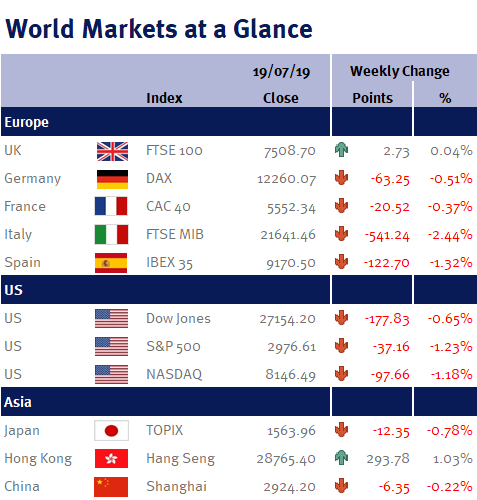There was a similar tone in the minutes of the ECB meeting released this week which showed the members were in “broad agreement” that they “needed to be ready and prepared to ease the monetary policy stance further”. ECB president, Mario Draghi has already made it clear the bank was preparing “additional stimulus”, and the account of the meeting confirms board members discussed restarting asset purchases and cutting interest rates.
Away from central banks, oil prices have been on the rise in recent weeks and reached a seven week high this week. Output in the Gulf of Mexico has been cut as a precaution on concerns that tropical storm “Barry”, could develop into a hurricane over the weekend, however, the main factor has been elevating tensions with Iran which has resulted in naval escorts of oil tankers this week.
Oil prices have been somewhat volatile over the past twelve months as attempts by OPEC to elevate oil prices (by maintaining supply cuts), have been countered by increasing oil supply from US shale. Whilst elevated oil prices would contribute to global inflation, current prices remain about in-line with their average of the past twelve months and still some way below the peak of the past twelve months.
Next week, China releases second quarter GDP, industrial production and retail sales data. The US also announces retail sales and industrial production data, along with housing starts and the Fed’s Beige book. Notable data from the UK also includes retail sales and employment data. Final point of interest will be a meeting of EU foreign ministers to discuss Iran’s non-compliance with the 2015 nuclear accord.
Peter Quayle, Fund Manager


